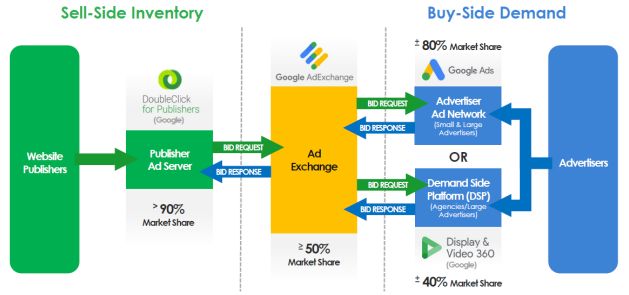USA v. Google LLC Court Filing, retrieved on January 24, 2023 is part of HackerNoon’s Legal PDF Series. You can jump to any part in this filing here. This is part 9 of 44.
IV. GOOGLE’S SCHEME TO DOMINATE THE AD TECH STACK
74. Over the past fifteen years, Google has acquired and maintained mutually reinforcing monopoly positions in tools across the ad tech stack. Google’s scheme has involved a range of conduct, whereby it—often surreptitiously—has wielded its market power in various ad tech tools to undermine attempts by publishers, advertisers, and rivals to introduce more competition for digital advertising transactions. Individually and in the aggregate, Google’s anticompetitive acts have deprived rivals of critical scale and contributed to Google’s dominance by erecting substantial barriers to entry and competition.
75. Google also has used its dominant position time and again to prevent publishers— its own customers—from efficiently and effectively multi-homing across ad exchanges, and to prevent rival ad tech providers from deploying technology that would have improved the process by which advertisers and publishers find the best advertising matches in real time for each impression. In the face of potential competitive threats, Google has resisted innovation and chosen not to compete on the merits. Instead, it has used acquisitions and market power across adjacent ad tech markets to quash the rise of rivals, tighten its control over the manner and means through which digital advertising transactions occur, and prevent publishers and advertisers from working effectively with Google’s rivals. As the figure below demonstrates, Google’s dominance across the ad tech industry is unparalleled.

Continue Reading Here.
About HackerNoon Legal PDF Series: We bring you the most important technical and insightful public domain court case filings.
This court case 1:23-cv-00108 retrieved on September 8, 2023, from justice.gov is part of the public domain. The court-created documents are works of the federal government, and under copyright law, are automatically placed in the public domain and may be shared without legal restriction.

